March 01, 2023
World Wildlife Day 2025 – Importance of Preserving Endangered Species
CM Content Team

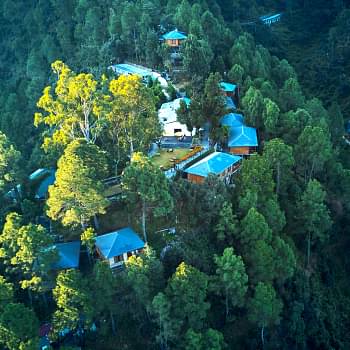
View all
140+
Resorts
March 01, 2023
CM Content Team
World Wildlife Day, celebrated annually on 3rd March, is a day to raise awareness about the importance of preserving wildlife and their habitat. With the rapidly increasing global biodiversity crisis and thousands of plants and animals facing the risk of extinction, the ecological balance is at stake. Celebrating World Wildlife Day brings people and organisations together on a global scale to protect endangered species.
There are various reasons why species become endangered, including habitat destruction, hunting, climate change, and pollution. Human activities, such as deforestation, agricultural expansion, and urbanisation, have resulted in the destruction of natural habitats, leaving many species without a place to live. Hunting and poaching have led to the decline of many animal populations, including rhinos, elephants, and tigers.
In such a situation, World Wildlife Day is an opportunity to celebrate all the wild flora and fauna for their contributions to the people and the environment at large. At the same time, the day is a reminder of the urgent efforts needed to step up the fight against wildlife crime and reduce endangered species due to human activities.
The theme for World Wildlife Day 2025
is "Connecting People and Planet: Exploring Digital Innovation in Wildlife Conservation". The motive behind this theme is to look at how digital tools can help protect endangered animals and wildlife on the whole, and promote legal and sustainable wildlife trade. This includes finding ways for people and animals to live together peacefully in our connected world, both now and in the future.
As per the World Wildlife Fund (WWF), the endangered species list includes more than 41,000 species. All of them have been assessed to be under threat of extinction, according to the International Union for Conservation of Nature (IUCN).
As per the IUCN Red List, the endangered species breakdown is 41% amphibians, 37% sharks and rays, 36% reef-building corals, 34% conifers, 26% mammals and 12% birds.
Here’s a list of a few extinct animals from the past 50 years.
These are 5 species that have disappeared and we will never see them again.
Every living thing on the endangered animals list or birds list is as important as us and plays a vital role on this planet.
Here’s why preserving every organism on the endangered species list is critical.
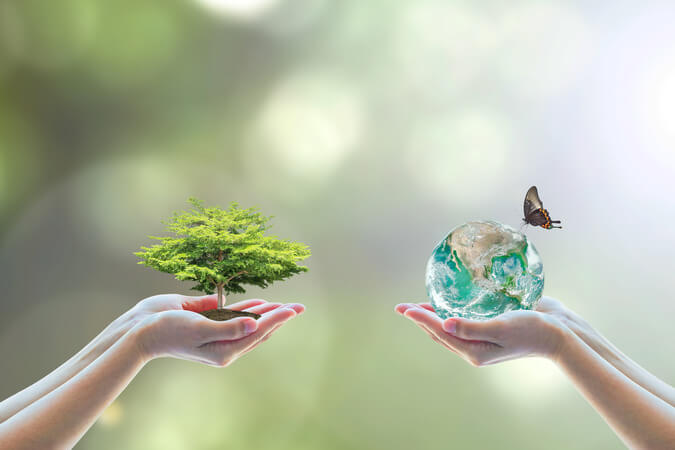
Several animal, bird and microorganism species provide a strong foundation for a healthy and balanced ecosystem. And, when there is even one endangered animal or a species facing the risk of extinction, it is a clear sign that the ecosystem is falling apart and an imminent threat is looming large.
The loss of every species triggers a disruption and often leads to the loss of other species within the ecosystem. And, as humans, we greatly depend on a healthy ecosystem for survival. So, if we fail to protect the endangered species of birds, plants and other land and marine animals, it will have severe repercussions and put our environment at risk.
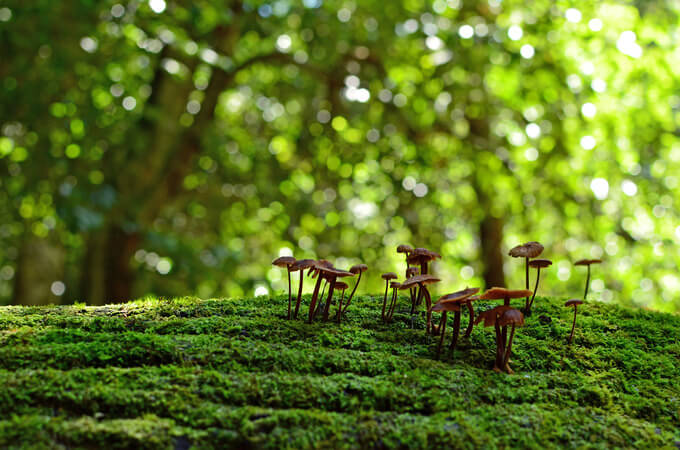
It is not just the endangered species of birds and animals that are on the verge of extinction. Several species of plants are also endangered. According to medical research, about 50% of the most prescribed medications are derived from a plant or other natural product.
Unfortunately, despite the rapid technological advancements, only about 5% of the known plant species are tested for their medicinal uses, and thousands of plants are yet to be identified. These plants could play a vital role in offering solutions to several diseases. Therefore, persevering endangered species is critical, or we may lose them from nature’s medical cabinet forever.
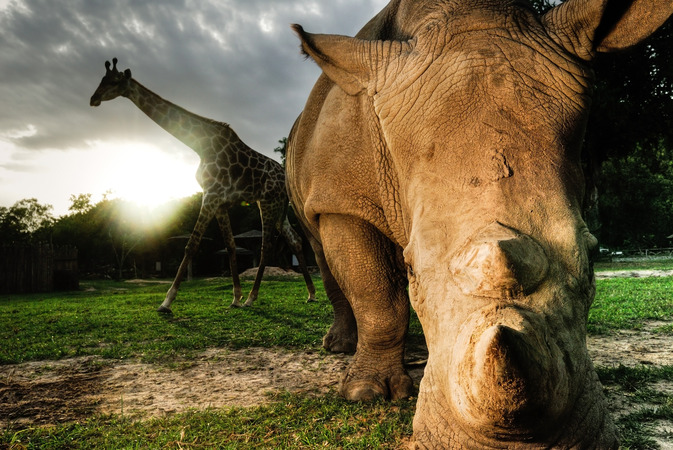
Apart from providing pivotal services in maintaining a healthy ecosystem, the endangered species of animals and birds help boost the economy. Over the past decade or two, the ecotourism industry has gained immense popularity worldwide, generating billions of dollars.
It is estimated that avid birdwatchers alone spend about USD 41 billion annually on travel and equipment. Although no one is talking about it, the less we care about protecting wildlife and plants, the more we are at risk of losing an important sector of the economy.
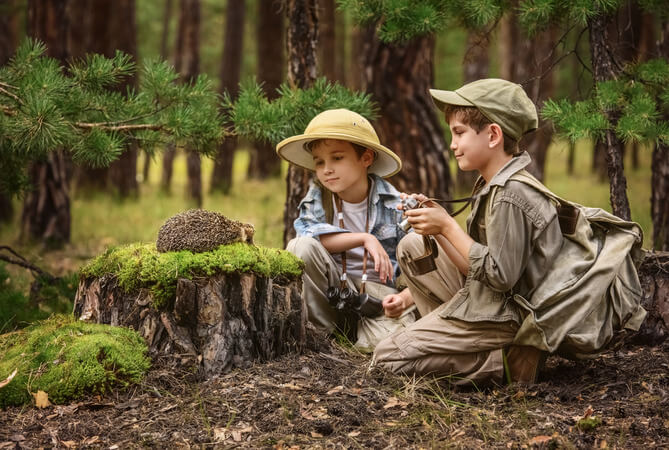
Imagine our future generation of kids learning about tigers, sharks, turtles, and many other species only in books and stories or on the internet! Wouldn’t that be heart-breaking? So, for the sake of our future generations and to give them the joy of seeing the animals and plants we have now, it is important that we preserve our endangered species.
While Governments worldwide and various international organisations are doing their bit to conserve endangered species in marines, animals, birds, and plants and protect them from becoming extinct, as an individual, you too can contribute to this noble cause.
If you are wondering what to do, here are a few suggestions:
Loss of natural habitat is one of the significant causes that has sent many endangered species in India on the cusp of extinction. You can do your bit by volunteering with a local wildlife or environment protection organisation to preserve the natural habitat for wildlife. Raise your voice against deforestation and forest degradation. It can have a significant domino effect in creating a safe space for wildlife.
Many people lack awareness about the potential dangers that many species are facing. Even if you cannot contribute directly to preserving endangered species, you can still raise awareness of the issue amongst your peers or in your locality and educate them about the importance of saving these beautiful creations of God.
Over the years, the use of pesticides and herbicides has increased manifold. However, people don’t realise the ill effects of this practice on nature, land, and animals. Several wildlife species are vulnerable to pollutants like pesticides that can build up in the water bodies and soil, putting the lives of the various animals at risk.
When you travel anywhere, you may purchase souvenirs or memorabilia to remind you of the good times you had on your trip. But, do you know the sale and purchase of such items are a vital cause of putting wildlife at risk because these items could be made of animal products?
So, the next time you purchase anything, avoid products made of animals like rhino horns, elephant tusks, crocodile skin, tiger skin, etc.
Many resorts in India claim to be eco-friendly but don’t practise sustainable methods. But the resorts offered by Club Mahindra are an exception. Apart from giving you the novelty of staying in different types of rooms, like a floating cottage in Ashtamudi in Kerala, boat houses in Kashmir and premium tents in Kanha, Uttarakhand, these resorts recognise the importance of sustainability and are committed to preserving ecological integrity.
From practising organic farming to rainwater harvesting within the resort and having sustainable waste management and recycling systems in place, Club Mahindra resorts have been contributing to the environment in several ways. Choosing to stay in such resorts is also a great way to contribute to preserving nature and endangered species of plants and animals.
So, with World Wildlife Day just around the corner, pledge your support to this beautiful cause and be a responsible traveller!
Mahindra Holidays & Resorts India Ltd. (MHRIL), a part of Leisure and Hospitality sector of the Mahindra Group, offers quality family holidays primarily through vacation ownership memberships and brings to the industry values such as reliability, trust and customer satisfaction. Started in 1996, the company's flagship brand ‘Club Mahindra’, today has over 300,000 members , who can holiday at 140+ resorts in India and abroad.
We use cookies to personalise content and to provide you with an improved user experience.By Continuing to browse this site you consent to the use of cookies.Please visit our cookie policy for further details.

Welcome to ClubMahindra.com In order to provide a personalised experience for you, we use cookies to enable some website functionality. Cookies help us see which articles most interest you; allow you to easily share articles on social media channels; permit us to deliver content personalised to your interests and locations; along with many other site benefits. For more information, please review our Cookie Policy
When you visit any website, it may store or retrieve information on your browser, mostly in the form of cookies. This information might be about you, your preferences or your device and is mostly used to make the site work as you expect it to. The information does not usually directly identify you, but it can give you a more personalized web experience. Because we respect your right to privacy, you can choose not to allow some types of cookies. Click on the different category headings to find out more and change our default settings. However, blocking some types of cookies may impact your experience of the site and the services we are able to offer.
Because we respect your right to privacy, you can choose not to allow some types of cookies and you have the right to withdraw your consent by send a mail to email id [email protected]
These cookies are essential in order to enable you to move around the site and use its features, such as accessing secure areas of the site. Without these cookies, services you have asked for cannot be provided.
These cookies allow us to employ data analytics so we can measure and improve the performance of our site and provide more relevant content to you. These cookies don't collect information that identifies a visitor down to an individual level that is available to us. These cookies are not passing personally identifiable information to any external third party other than in limited cases when we engage a service provider to act on our behalf but who is then unable to use the data for their own purposes.
Performance cookies are generally third-party cookies from vendors we work with or who work on our behalf that collect information about your visit and use of the Club Mahindra website, for instance which pages you visit the most often, and if you get error messages from web pages. These cookies don't collect information that identifies a visitor. All information these cookies collect is anonymous and is only used to improve your overall experience on how the website works. Third party vendors may have access to this data and may use it to improve their overall services and offerings.
Functionality cookies allow a site to remember choices you make (such as your user name, language or the region you are in) and provide more enhanced, personal features. These cookies cannot track your browsing activity on other websites. They don't gather any information about you that could be used for advertising or remembering where you've been on the Internet outside our site.
Third-party advertising and social media cookies are used to (1) deliver advertisements more relevant to you and your interests; (2) limit the number of times you see an advertisement; (3) help measure the effectiveness of the advertising campaign; and (4) understand people's behaviour after they view an advertisement. They are usually placed on behalf of advertising networks with the site operator's permission. They remember that you have visited a site and quite often they will be linked to site functionality provided by the other organization. This may impact the content and messages you see on other websites you visit. If you do not allow these cookies you may not be able to use or see certain these sharing tools content on our website.